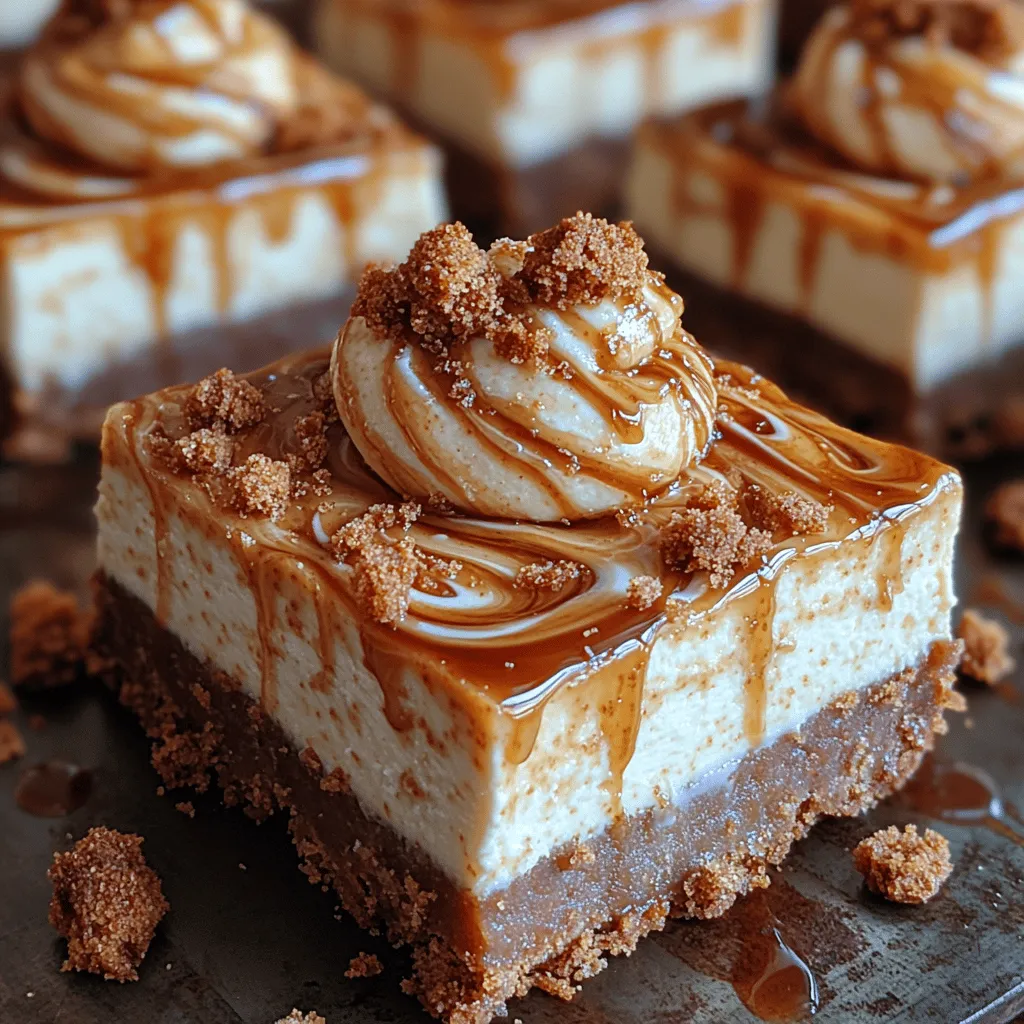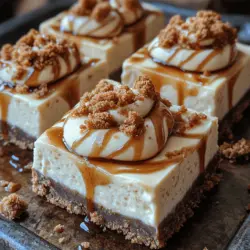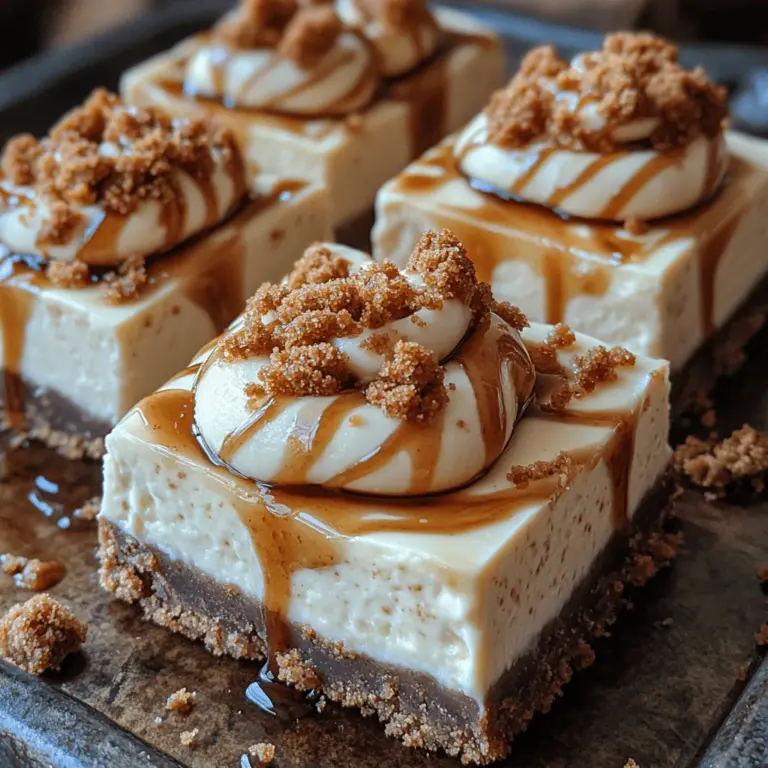Introduction
Risotto, a classic Italian dish, has captured the hearts of many food enthusiasts around the world. Known for its creamy texture and rich flavors, this rice dish is a true celebration of comfort food. Originating from Northern Italy, risotto is more than just a meal; it’s an experience that brings warmth and joy to the dining table. The beauty of risotto lies in its simplicity, yet it requires a careful balance of quality ingredients and precise cooking techniques to achieve the perfect dish.
When it comes to comfort, few meals can rival the allure of creamy mushroom risotto. Imagine a warm bowl filled with tender Arborio rice, enriched with the earthy flavors of fresh mushrooms, and glistening with a velvety sauce. This dish is not only satisfying but also incredibly versatile, making it suitable for both weeknight dinners and special occasions. Whether paired with a crisp salad or enjoyed on its own, creamy mushroom risotto promises to be a delightful feast for the senses.
Understanding Risotto
At its core, risotto is a dish characterized by its creamy consistency, resulting from the slow cooking of rice in a rich broth. Unlike other rice preparations where the grains are boiled and drained, risotto is cooked using a technique that allows the rice to absorb the liquid gradually. This method results in a luscious, creamy texture that is the hallmark of a well-made risotto.
What exactly defines a perfect risotto? It should be creamy yet al dente, with each grain of rice retaining its shape and firmness. Achieving this delicate balance requires both the right type of rice and careful attention during the cooking process. Arborio rice, a short-grained variety, is the most commonly used rice for risotto. Its high starch content is essential for creating the creamy sauce that envelops the rice, making it the ideal choice for this comforting dish.
Ingredients for Creamy Mushroom Risotto
Creating a delectable creamy mushroom risotto begins with sourcing high-quality ingredients. Here’s a comprehensive overview of what you’ll need:
– Arborio Rice: This short-grain rice is the star of the dish. Its unique starchy composition allows for the creamy texture that risotto is known for. When cooked, Arborio rice releases starch, which thickens the dish and creates that signature mouthfeel.
– Fresh Mushrooms: The choice of mushrooms can greatly influence the flavor profile of your risotto. Varieties such as cremini, shiitake, or even wild mushrooms add depth and complexity to the dish. Fresh mushrooms should always be used for the best taste, as dried mushrooms may lack the vibrant flavor and texture needed for this recipe.
– Onion and Garlic: These aromatics are essential for building a robust flavor base. Onions provide sweetness, while garlic contributes a savory depth that enhances the overall taste of the risotto.
– Vegetable or Chicken Broth: The broth serves as the cooking liquid for the rice and is crucial in imparting flavor. Homemade broth is ideal, but high-quality store-bought versions can be used as a convenient alternative.
– White Wine (optional): A splash of white wine not only adds acidity but also elevates the flavor of the risotto. If you prefer a non-alcoholic version, you can skip this ingredient or use a splash of lemon juice for brightness.
– Parmesan Cheese: This cheese adds creaminess and a rich, savory flavor. Grating fresh Parmesan cheese just before adding it to the risotto will give the best results.
– Butter and Olive Oil: A combination of these fats provides richness and a silky finish to the dish. The olive oil is used for sautéing, while butter is folded in at the end for added creaminess.
When preparing creamy mushroom risotto, sourcing fresh ingredients is key to achieving the best flavor. Visit local farmers’ markets or choose organic produce when possible. Fresh ingredients not only enhance the taste but also contribute to the overall quality of the dish, making your risotto a true labor of love.
Preparation Steps for Creamy Mushroom Risotto
Preparing the Broth: Why It Matters
The foundation of a great risotto begins with the broth. It’s important to use warm broth during the cooking process, as this helps maintain the cooking temperature of the rice and allows for even absorption. Cold broth can shock the rice, leading to uneven cooking and a less desirable texture.
How to Make Homemade Broth
Making homemade broth is relatively simple and can significantly elevate the flavor of your risotto. Here’s a quick method for preparing a basic vegetable broth:
1. Ingredients: Gather vegetable scraps, such as onion peels, carrot tops, celery ends, and garlic cloves. You can also add herbs like thyme and parsley for extra flavor.
2. Cooking: Place the vegetable scraps in a large pot and cover with water. Bring to a boil, then reduce to a simmer. Let it cook for at least 45 minutes to an hour, allowing the flavors to develop.
3. Straining: Once the broth has reached your desired flavor, strain out the solids and store the liquid in a sealed container. You can refrigerate it for up to a week or freeze it for longer storage.
Using homemade broth will impart a depth of flavor that store-bought versions may lack, making your risotto stand out.
Sautéing the Aromatics
With your broth ready, it’s time to focus on the aromatics that will form the flavor base for your creamy mushroom risotto.
Chopping and Cooking Onions and Garlic
Begin by finely chopping one medium onion and a few cloves of garlic. The size of the pieces should be small enough to blend seamlessly into the dish while still providing bursts of flavor.
1. Sautéing Technique: In a heavy-bottomed pan or skillet, heat a tablespoon of olive oil over medium heat. Once hot, add the chopped onions and sauté until they become translucent and fragrant, about 3-4 minutes.
2. Adding Garlic: Add the minced garlic to the pan and continue to sauté for an additional minute, being careful not to let it burn, as burnt garlic can impart a bitter taste.
Cooking the Rice: The Heart of the Risotto
Now that your aromatics are ready, it’s time to focus on the star of the dish—Arborio rice.
Toasting Arborio Rice
1. Toasting: Add 1 cup of Arborio rice to the pan with the sautéed onions and garlic. Stir the rice in the pan for about 2-3 minutes. This toasting process helps to enhance the nutty flavor of the rice and prepares it to absorb the broth.
2. Deglazing with Wine: If you’re using white wine, pour in about half a cup at this stage. Stir the rice until the wine has mostly evaporated. This step adds a layer of acidity to the dish, balancing the richness of the final risotto.
The Gradual Addition of Broth
The key to a perfect risotto is in the gradual addition of warm broth.
1. First Addition: Begin by adding a ladleful of warm broth to the rice. Stir gently and allow the rice to absorb the liquid. This process releases starches from the rice, creating a creamy texture.
2. Continued Stirring: Continue to add broth, one ladleful at a time, stirring frequently. This allows the rice to slowly absorb the liquid and creates that luxurious creaminess that risotto is known for.
3. Timing: As you add broth, monitor the rice’s doneness. The cooking process typically takes around 18-20 minutes. The risotto is ready when the rice is al dente—tender but still with a slight bite.
By following these preparation steps, you’ll be well on your way to creating a delicious and comforting creamy mushroom risotto that is sure to impress anyone who sits down to enjoy it. Stay tuned for more detailed instructions on finishing touches and serving suggestions in the next section.

Incorporating Mushrooms
Mushrooms are an essential ingredient in many savory dishes, and they play a starring role in the decadent Biscoff cheesecake bars by adding depth and umami. While traditional cheesecake recipes don’t often include mushrooms, experimenting with them can yield surprising and delightful results. Incorporating mushrooms into a dessert might seem unconventional, but when done thoughtfully, it can elevate the flavor profile and make your Biscoff cheesecake bars truly unique.
Types of Mushrooms to Use
When it comes to choosing the right mushrooms for your Biscoff cheesecake bars, consider varieties that can complement the sweetness of the Biscoff cookies without overpowering them. Here are some excellent options:
– Cremini Mushrooms: These are young portobello mushrooms and have a rich, earthy flavor that can blend seamlessly into a cheesecake mixture when sautéed and puréed. Their subtle taste pairs well with sweet elements.
– Shiitake Mushrooms: Known for their distinct flavor, shiitake mushrooms can add a hint of smokiness that contrasts beautifully with the creamy and sweet elements of the cheesecake. Use them sparingly to maintain a balance.
– Porcini Mushrooms: These mushrooms have a stronger flavor and aroma; when rehydrated and blended, they can add a luxurious depth to your dessert. Ensure to finely chop or purée them to avoid any chunky textures.
Cooking Mushrooms: Timing and Technique
To successfully incorporate mushrooms into your Biscoff cheesecake bars, start by cleaning them thoroughly to remove any dirt. Slice them thinly, then sauté them in a bit of butter or oil over medium heat. This will release their moisture and enhance their flavor. The cooking process should take about 5-7 minutes until they are golden brown and tender.
After cooking, allow the mushrooms to cool before mixing them into your cheesecake batter. This will prevent the heat from affecting the other ingredients and ensure a smooth mixture. If you prefer a more intense flavor, consider puréeing the sautéed mushrooms before adding them to the cheesecake mixture, which will create a uniform texture.
Achieving the Perfect Creamy Texture
The texture of your cheesecake bars is crucial for a delicious outcome. To achieve that velvety, creamy consistency, it’s essential to use room temperature cream cheese and incorporate it gradually. Start by beating the cream cheese until smooth, then add sugar, eggs, and any additional flavors like vanilla or melted chocolate.
Avoid overmixing the batter, as this can introduce too much air and lead to cracks during baking. If you’re incorporating mushrooms, ensure they are finely blended to avoid any textural surprises. The key to perfect cheesecake bars is finding the right balance between creaminess and firmness, so make sure to chill them adequately after baking.
The Role of Cheese and Butter
Cheese and butter are fundamental to creating the rich, creamy base of your Biscoff cheesecake bars. Cream cheese provides the necessary tanginess, while butter adds richness and helps bind the ingredients together. For best results, use full-fat cream cheese, as it contributes to a smoother texture.
When making the crust, melted butter mixed with crushed Biscoff cookies creates a delightful base. Be sure to press the crust firmly into the baking pan to avoid crumbling when you cut the bars later. The butter also helps the crust crisp up nicely, adding a contrast to the creamy filling.
Balancing Flavors and Consistency
Incorporating mushrooms adds a unique flavor element to your cheesecake bars; however, it’s crucial to balance this with the sweetness of the Biscoff. You might need to adjust the sugar content slightly based on the type of mushrooms you choose. For example, if using shiitake mushrooms, consider adding a touch more sugar to counterbalance their earthy notes.
Moreover, ensure that the consistency of the batter remains thick enough to hold its shape but not so dense that it becomes heavy. A good rule of thumb is to taste your batter before pouring it into the pan. If it feels imbalanced, a sprinkle of salt or a dash of lemon juice can help enhance the overall flavor.
Flavor Variations and Customizations
One of the joys of cooking is the ability to customize recipes to suit your tastes. While the classic Biscoff cheesecake bars are delectable as they are, there are numerous ways to explore different flavor profiles.
Exploring Different Types of Mushrooms
As mentioned earlier, various mushrooms can bring unique flavors to your dessert. If you enjoy experimenting, try mixing different types of mushrooms. For instance, combining cremini and porcini can create a more complex flavor profile. Ensure that any mushrooms you choose are finely chopped or puréed for an even distribution throughout the cheesecake.
Adding Vegetables for a Nutrient Boost
Incorporating vegetables into your Biscoff cheesecake bars can enhance their nutritional value. While it may sound unusual, finely grated zucchini or carrots can add moisture and a subtle sweetness without overpowering the dessert. Make sure to squeeze out excess moisture from vegetables before adding them to maintain the cheesecake’s consistency.
Incorporating Proteins
For a heartier version of your cheesecake bars, consider adding proteins. Cooked chicken or shrimp could be an adventurous twist, providing a savory contrast to the sweet Biscoff base. For plant-based options, consider using chickpeas or lentils: they can be puréed and mixed into the batter for added creaminess and protein without compromising flavor.
Adjusting Flavor Profiles with Herbs and Spices
Herbs and spices can dramatically change the flavor of your Biscoff cheesecake bars. Adding a sprinkle of fresh thyme or rosemary can introduce an aromatic element, while spices like cinnamon or nutmeg can enhance the sweetness. If you’re feeling adventurous, a few drops of truffle oil can elevate the dish to gourmet status, marrying the earthiness of mushrooms with the sweet creaminess of the cheesecake.
Serving Suggestions for Creamy Biscoff Cheesecake Bars
To create an unforgettable dining experience, consider how you present your Biscoff cheesecake bars. Thoughtful serving suggestions can elevate your dessert from simple to spectacular.
Ideal Accompaniments and Side Dishes
Pairing your cheesecake bars with complementary flavors can enhance the overall experience. A light, fresh salad drizzled with a balsamic reduction can provide a refreshing contrast to the richness of the cheesecake. Alternatively, a scoop of vanilla ice cream or a dollop of whipped cream can add a touch of indulgence.
Recommended Wines to Enhance the Meal
When serving cheesecake bars, consider offering a dessert wine or a sweet sparkling wine. A Moscato or a late-harvest Riesling pairs beautifully with the sweet notes of Biscoff. If you prefer something non-alcoholic, a spiced chai tea can bring comforting warmth and balance to the flavors.
Presentation Tips for an Appealing Plate
Presentation can make a significant impact. Consider cutting your cheesecake bars into uniform squares and arranging them on a decorative platter. A light dusting of powdered sugar or a drizzle of caramel sauce can add visual appeal. Garnishing with fresh mint leaves or edible flowers can provide a pop of color and freshness.
Storing and Reheating Leftover Cheesecake Bars
If you happen to have leftovers (which is doubtful, given how delicious these bars are!), proper storage is essential to maintain their quality.
Best Practices for Storing Cheesecake Bars
To keep your Biscoff cheesecake bars fresh, store them in an airtight container in the refrigerator. They can last for up to five days, but the sooner you enjoy them, the better the flavor and texture will be.
Containers and Temperature Considerations
Use a glass or plastic container that can be sealed tightly. If stacking bars, consider placing parchment paper between layers to prevent sticking. Make sure to cool the bars completely before covering them to avoid condensation, which could lead to sogginess.
Reheating Methods to Retain Creaminess
If you wish to enjoy your cheesecake bars warm, reheating them slowly is key. Place them on a microwave-safe plate and heat in short increments of 10-15 seconds until just warmed through. Avoid overheating, as this can cause the filling to become rubbery.
Tips on Adding Liquid to Restore Texture
If your bars feel too dense after refrigeration, a drizzle of cream or milk can help restore some moisture when reheating. This will bring back the creamy texture that makes them so enjoyable.
Conclusion
Making homemade Biscoff cheesecake bars is a joyful culinary adventure that can yield delicious and delightful desserts. The incorporation of mushrooms and creative flavor variations offers an exciting twist on a classic treat, allowing you to explore your culinary creativity. Don’t hesitate to experiment with different ingredients and methods to make this recipe your own.
Cooking from scratch not only nourishes the body but also the soul, creating a comforting meal that can be shared with loved ones. Embrace the satisfaction of crafting these cheesecake bars and relish in the joy they bring to your table. Whether served at a gathering, as a sweet ending to a meal, or simply enjoyed on a quiet evening, these Biscoff cheesecake bars are sure to become a cherished recipe in your collection.


